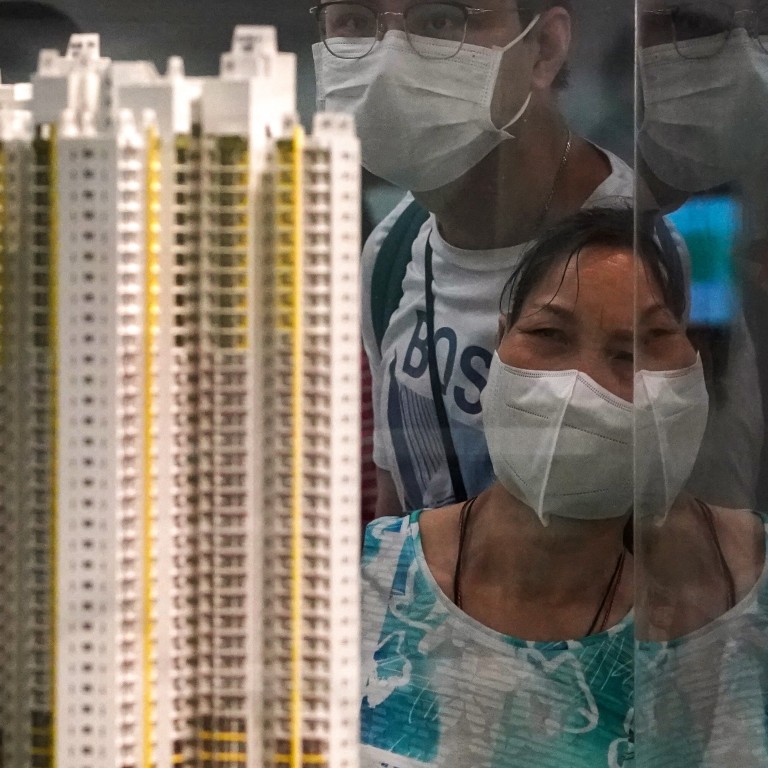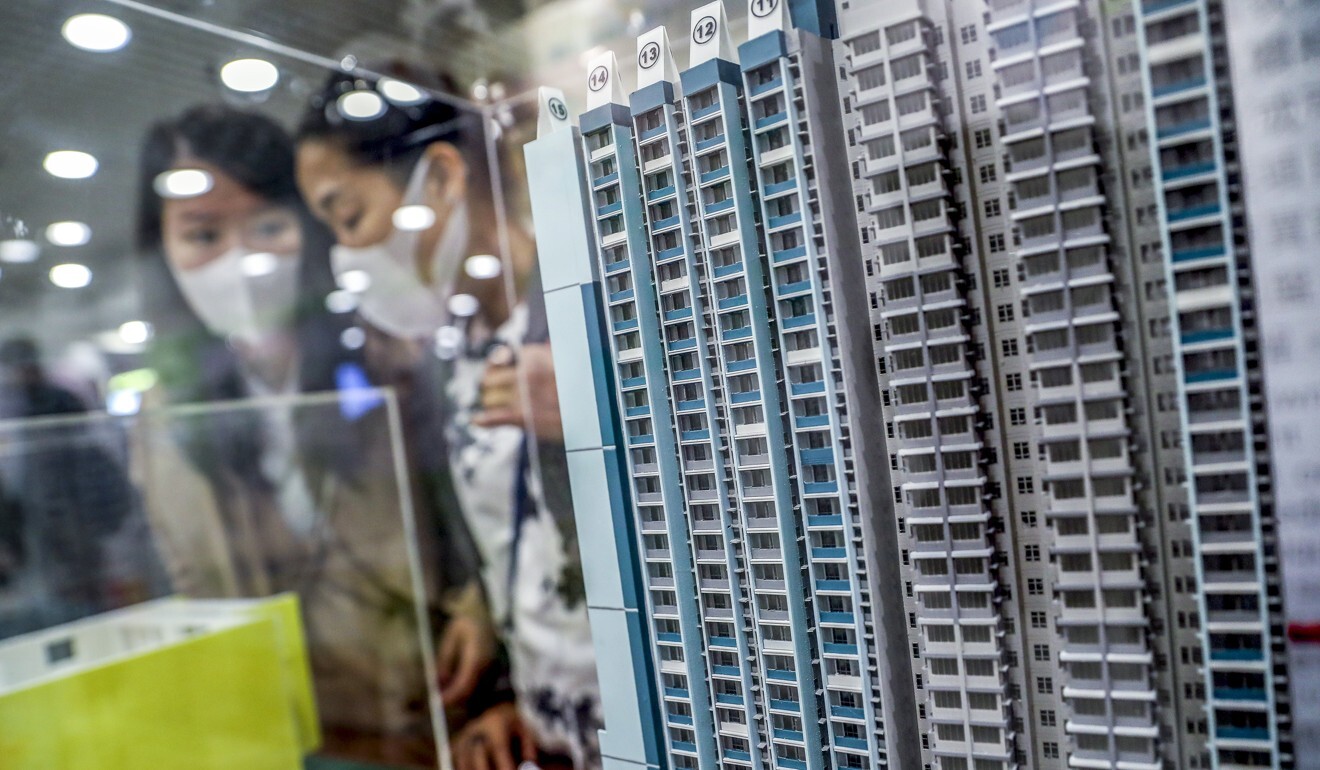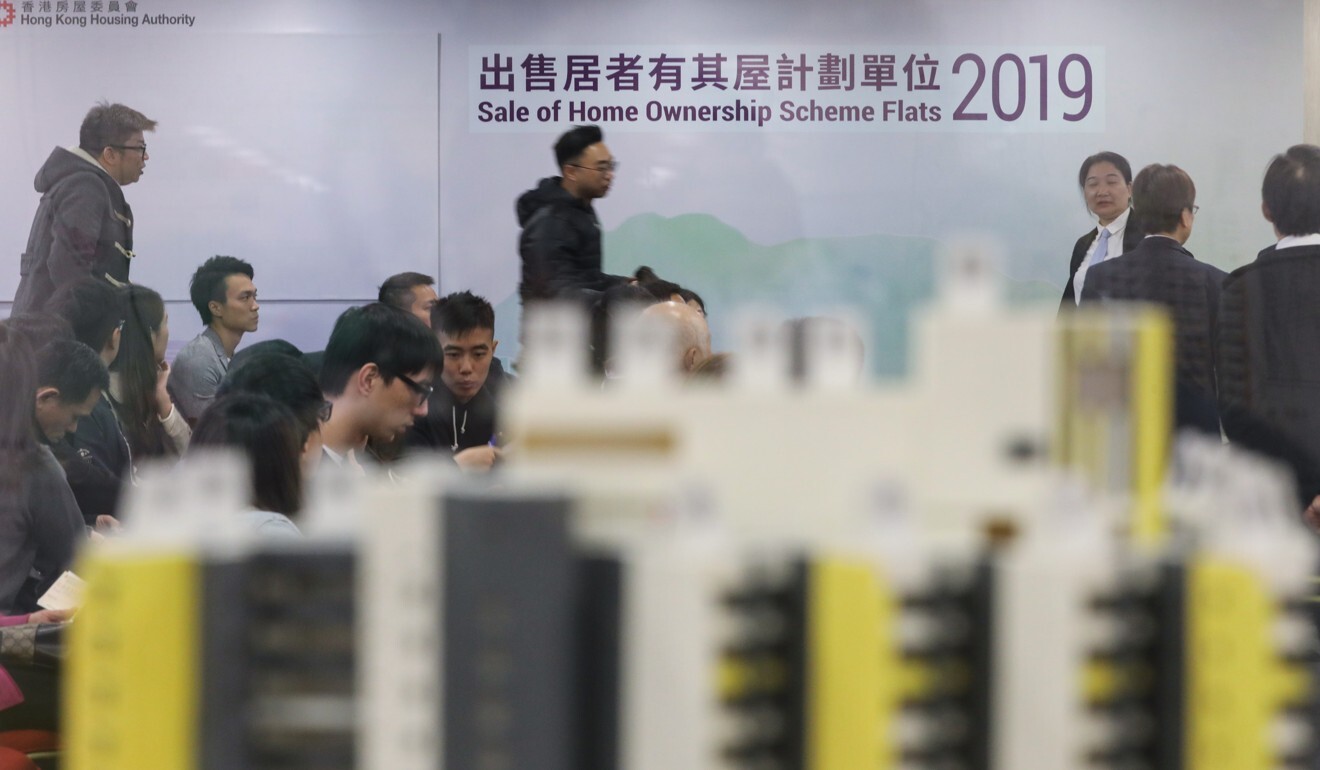
More than 500 subsidised Hong Kong homes remain unsold – economic downturn, small flat size blamed for poor reception
- Some 523 of 3,710 flats in Tsing Yi and Chai Wan found no takers even after they were offered at 51 per cent off the market price
- The unsold flats will be paired with another 4,700 homes during the launch of a new batch of homes in May next year
More than 500 new subsidised homes remained unsold after the Hong Kong Housing Authority’s offers expired on Wednesday, marking the first time such a cold response was recorded since the scheme was launched in 2016.
Gloomy economic prospects and the small size of flats are to be blamed for the poor reception to the otherwise popular scheme, according to authority members.
The authority said 523 of 3,710 flats, or 14 per cent, remained unsold in the present batch of the Green Form Subsidised Home Ownership Scheme (GSH).
The scheme is offered exclusively to public housing tenants, or those likely to be allocated a public rental flat in a year. Flats in the current batch were sold at 51 per cent off the market price.
Among those unsold, 516 flats are from Ching Fu Court in Tsing Yi in the New Territories, and seven from Dip Tsui Court in Chai Wan on Hong Kong Island.
Cleresa Wong Pie-yue, chairwoman of the authority’s subsidised housing committee, said she believed the flats’ small size and the economic downturn put off buyers.

“For those living in or waiting for public housing, they only get one chance in a lifetime to buy a flat under this scheme. They may want to save it and look for bigger flats next time,” she said. “But I also understand that some may have decided not to make an investment yet when economic prospects are still uncertain.”
The authority received a total of 48,000 applications for this batch of homes, with 38,000 involving families. The rest were singletons. All eligible applicants were invited to select the flats of their choice on different dates over the past few months, but many did not show up or dropped out after checking what were available.
Residents waiting years for public housing offered short-term relief
The two estates are part of the third batch of housing rolled out since 2016 under the GSH, the most affordable of three government programmes delivering homes at a discounted rate.
The flats in Tsing Yi, sized between 187 and 471 sq ft, were priced from HK$817,700 (US$105,000) to HK$2.7 million (US$348,000), while those in Chai Wan, spanning between 187 and 320 sq ft, cost HK$976,700 to HK$2.1 million.

The smallest flats accounted for close to a fourth of all units in Chai Wan and about 22 per cent in Tsing Yi. Buyers can expect to move into the Chai Wan estate by 2022 and in Tsing Yi by 2023.
The authority plans to launch a new batch of 4,700 GSH flats in May next year, selling the first phase of about 2,100 units.
Wong said the unsold flats would be included in the May round, but during the sales of homes in subsequent phases, estate locations and flat size could be reviewed if necessary.
Waits for public housing will only get longer, new think tank numbers show
Andrew Wan Siu-kin, a member of Wong’s committee, agreed the gloomy economic prospect and the small flat size were reasons for applicants to shun this batch of homes.
The former opposition lawmaker added that while demand had decreased, the supply of public housing was also at low tide. He doubted whether Chief Executive Carrie Lam Cheng Yuet-ngor could honour her promise of meeting the housing target even if demand dropped in the near term.
Another committee member and pro-establishment lawmaker Kwok Wai-keung was less pessimistic, saying the potential applicants could be more patient in house hunting, as they had been paying low rent for the public rental units they lived in.


